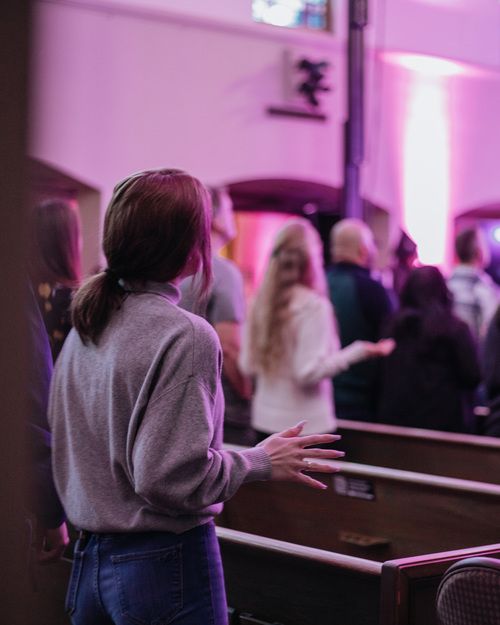Monday Devo

Scripture Reading:
Luke 6:20, 24
20 And he lifted up his eyes on his disciples, and said: “Blessed are you who are poor, for yours is the kingdom of God... 24 “But woe to you who are rich, for you have received your consolation.
20 And he lifted up his eyes on his disciples, and said: “Blessed are you who are poor, for yours is the kingdom of God... 24 “But woe to you who are rich, for you have received your consolation.
Commentary from the ESV Study Bible:
6:20 Blessed are you who are poor. This means “blessed are those of you who are poor in material things and who are also my disciples and thus are putting your trust in God.” In the OT, “the poor” (the same Gk. word, ptōchos, in the Septuagint) frequently referred to the pious poor who looked to and depended on God. Jesus is not saying that poverty in itself is a state of happiness or blessing; it is a blessing only when accompanied by trust in God. Jesus’ statement elsewhere that he was anointed “to proclaim good news to the poor” (4:18) is a quotation from Isa. 61:1, which has a strong spiritual dimension as well: good news would come to the poor who long and wait for God. for yours is the kingdom of God. Such people belong to the kingdom and will receive the blessings of the kingdom (cf. note on Matt. 5:3). Jesus consistently gave special care to those on the fringes of society—people who bear God’s image but who are treated as trivial and the objects of oppression (see Luke 14:13, 21; 18:22; cf. James 2:3–6; 5:1–6).
6:24 Woe to you who are rich is a solemn warning to those who are rich against the tendency to delight in and trust the things of this life more than God, for you have received your consolation. Care for the poor and the dangers of riches are common themes in Luke (cf. 1:53; 12:13–21; 16:19–31).
6:24 Woe to you who are rich is a solemn warning to those who are rich against the tendency to delight in and trust the things of this life more than God, for you have received your consolation. Care for the poor and the dangers of riches are common themes in Luke (cf. 1:53; 12:13–21; 16:19–31).
Study Questions:
- In chapter 6, Luke records Jesus' famous sermon, "The Sermon on the Plain", or as Matthew titles it, "The Sermon on the Mount." He gives 4 blessings (the Beatitudes) followed by 4 corresponding woes. The first two Brandon talked about on Sunday were to the poor and the rich (vs. 20 and 24). Jesus ISN'T saying that your salvation has anything to do with the amount of money you have. He is saying that we should be among those who understand that they are spiritually bankrupt and can't do anything on their own to find favor with God. On the other hand, WOE to those who think they can earn their standing with God through good deeds. Which category do you typically drift into when it comes to how you view your standing with God?
- The perfect example of this contrast is Jesus' parable of the Pharisee and the tax collector in Luke 18. They both go to the temple to pray. The Pharisee prays "to himself" and says, "God, I thank You that I am not like other people: swindlers, unjust, adulterers, or even like this tax collector. I fast twice a week; I pay tithes of all that I get." The tax collector, on the other hand, stands at a distance with his gaze to the floor. He beats his chest and says, "God, be merciful to me, the sinner!" Jesus says it was he, not the Pharisee, that left justified before God. This parable speaks to the tendency in all of us to hide our reality and pretend we are perfect. It is pride that is in us all, and it is almost impossible to see in the mirror. How can you make sure you keep the broken, repentant heart of the tax collector instead of the puffed up, prideful attitude of the Pharisee? What are the signs that we're getting off track?
Pray:
- That you would remember that you are spiritually bankrupt without Jesus, unable to please God.
- That you would keep a humble, repentant heart before God.

No Comments